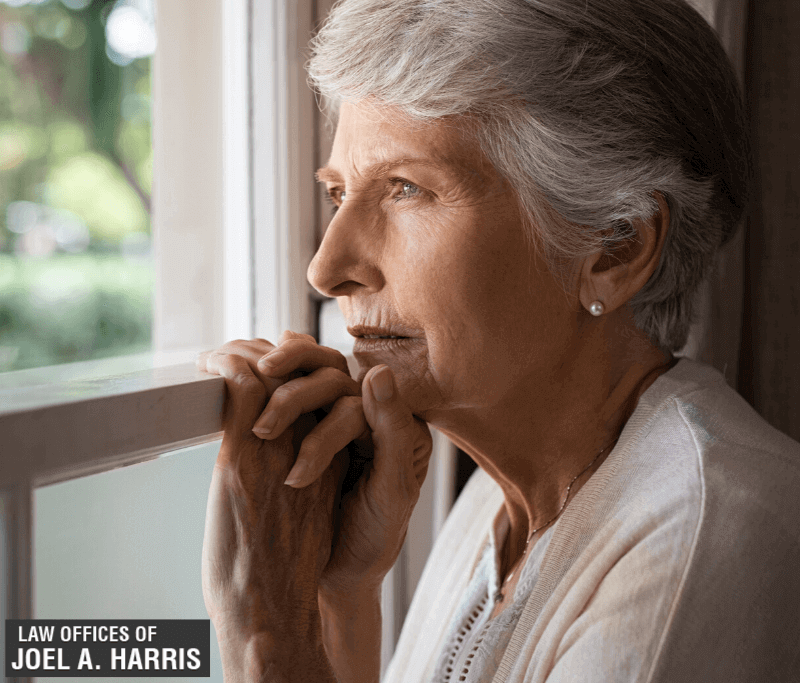Sudden Loss of a Spouse: How to Cope & Start the Healing

The loss of any loved one is an extremely traumatic experience, probably one of the most traumatic things a person can go through. To make matters worse, in today’s day and age, once the loved one passes, grieving seems to be pushed aside while important matters such as financial information, arrangements of affairs, etc. seem to take priority. When the loved one that passes is a spouse or significant other, the situation is at its most complicated. The emotional burden of losing them is tremendous, but at the same time, there seem to be a million things that need to be done, all within a short period of time. That is why I believe that the process needs to be simplified so more time and effort can be put into the healing process, and not mountains of paperwork.
Take Care of Yourself
Oftentimes with the frantic flurry of paperwork and tasks that follow, people don’t allow themselves the proper time they need to process. Taking care of yourself physically and mentally will be crucial in getting your footing back, and getting on the track towards healing. Note that this is just as important if you are taking care of a sick spouse – you will be no good to anyone if you are not well.
Physical exercise has been proven time and time again to be good for not just the body, but the mind as well since it releases endorphins, which are the “feel-good” hormone. Remembering to take a walk, jog, or hit the gym during these times can often be good for your physical and mental health on many levels. Joel does Pilates three times a week and feels great!
Talking to a professional can also be extremely beneficial, although there is a stigma associated with mental health professionals which is often unwarranted. Talking to someone who is trained to help you think through your experience will not only speed up the healing process, but it will enable you to free all feelings that you possibly could not share with close family or friends.
Take a Look at the Paperwork
Even though this is the part that shouldn’t be as important as it is, taking care of the essentials for your deceased partner is something that will need attention early on in the aftermath. To help you in this trying time, here is a quick list of the tips that we have to offer you to make the process go as smoothly as possible.
1. Follow the Money
If you weren’t the one handling the family finances, then begin by researching the assorted expenses paid and also the incomes received. Make sure you understand every expense and know whether or not it’s a one-time or continual gain or expense. Make sure you have enough money accessible to pay off any bills that will be coming in the following months. Cancel unwanted continual expenses of your partner, like medical insurance, subscriptions and club dues, and obtain partial refunds, if obtainable. Keep a joint bank account open for a minimum of one year to accommodate potential odd refunds and expenses.
2. Make a List
Make an inventory of everything on your mind. Embrace everything you’re thinking that you would like to try and do, everything you’re worrying and stressing out about, and everything people think you ought to do. Then place the things on a list. Complete the things that need to be done, or will need to be done within the next month or two, and let the other tasks take less priority. This is your time to grieve. While some things are unavoidable, the remainder are just other people’s opinions and you need time to think about what your personal steps will be within the coming months. There are books available that have checklists already made for you.
3. Gather Important Documents
Bank accounts, brokerage and retirement accounts, credit card statements, tax returns, life insurance, automobile titles, birth certificates, death certificates (you may want many duplicate copies of the death certificate for money and tax matters to facilitate amendment of ownership), Social Security numbers and estate planning documents, like wills, trusts and powers of attorney. Appraisals for assets, businesses closely-held and substantial personal or distinctive assets are also needed for tax preparations.
4. Talk to a Professional
It’s normal to feel exhausted by all that you’re suddenly facing both personally and financially. And once you become tired, your focus, ability to think clearly, and recall and decision-making all suffer. Make sure that you make time to talk to someone that can help you think more clearly so you can make the best choices for you.
5. This Isn’t Permanent
While this may seem like a living nightmare (and it probably is), remind yourself that this is not how you are going to feel continuously forever. You will eventually have all the papers in order. While your loved one will not be able to return physically, once you have time to calm down and reflect, you will feel more at peace with the situation. That will take time, though, so be patient with yourself and know that you will need to be strong now, but that it will get better.
6. Good Time for a Little Legal Help
There are always legal issues when a loved one dies, and some have important deadlines. Be sure to visit your estate planning attorney for a checklist as soon as you have a death certificate.
What Should I Do Now?
If you are facing the death of a spouse and need legal assistance, The Law Offices of Joel A Harris, located in Concord, Walnut Creek, and Antioch are available to help you to the best of their abilities. Joel Harris is an attorney with over 25 years of experience and kind, understanding, and efficient. If you are not sure how to begin, or you just want some help navigating the legal side of this process, feel free to visit us online, in person or by phone at (925) 757-4605. We understand your situation, and we will strive to make it as clean and simple as possible.
Sources
- https://dontinvestandforget.com/60s/sudden-loss-of-a-spouse-navigating-the-aftermath/
- https://www.verywellmind.com/coping-with-death-of-spouse-2301016
- https://www.nytimes.com/2016/09/27/well/family/when-a-spouse-dies-resilience-can-be-uneven.html
- https://www.ameriprise.com/retirement/life-events/death-of-a-spouse-and-finances/
- https://www.kiplinger.com/article/retirement/T065-C032-S014-6-tips-for-those-who-have-lost-a-spouse.html





